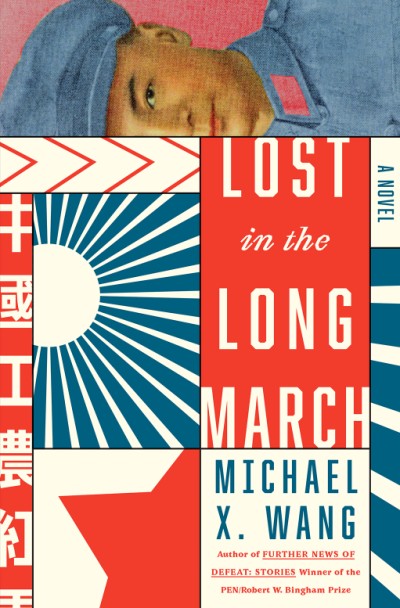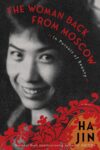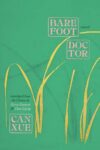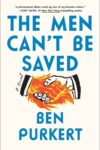
[Abrams Books; 2022]
This book is an awesome achievement. Michael X. Wang has covered nearly half a century of Chinese history and managed to express not only what was achieved, but also what was lost. The absences are never overlooked in the mass of material.
The epic, though not particularly long, novel begins in 1934 as the ragtag Red Army is running from the Nationalists. This defensive movement, the famous Long March, will continue for over a year and ultimately span more than five thousand miles before culminating in Northwest China’s Shaanxi Province, a neighboring province of the one where Wang was born (though he grew up in the United States). If that sounds like military legend, it was more like an unending series of discontinuities to the characters in Lost in the Long March. The entirety of meta-matching—any alignment between the macro situation and the individual experiences of those involved—can be reduced to one word: survival. Where the Communist Army as an organization is just trying to avoid total defeat at the hands of the Kuomintang, most Communist foot soldiers are only there, Wang argues, because they saw joining an armed struggle as a way to preserve their own fragile self-conceptions. The march becomes a matter of institutional and individual survival.
The novel contains multiple shifts in point-of-view, in which a different character comes to the fore and serves as that section’s protagonist. But the two main characters for the majority of the book, Ping and Yong, are enlistees in the Red Army during the Long March. Ping, a gunsmith, has essentially drifted into the Communist cause. An impoverished orphan in Canton (Guangzhou), he first joins a gang because he has no legal means of survival. Then the Nationalists begin their violent crackdown on Canton’s organized crime rings, and the gang option is no longer any kind of safe harbor. Shortly thereafter, he ends up a soldier in the Communist Army. Supplementing the progression of the character through story, Wang’s language amplifies the hazy yet dominant way the world is shaping Ping’s course. After “the Nationalist army cracked down on Canton’s underworld,” Ping traveled to the countryside because a friend “heard a rumor about a sanctuary run by poor farmers and mountain bandits where the only senseless killings were those of the gentry—people who didn’t deserve sympathy anyway . . . Ping tagged along because he had nowhere else to go.”
Here, class dynamics are far from absent, but they are not consciously attached to politics. It is more esoteric sociology at this point in the story, expressed through not much more than third-hand descriptions of the practices of a single locality in the countryside. Ping hardly conceives of himself as part of a worldwide revolution.
Yong, the only female soldier character, begins as an avowed and self-defined Marxist. By negation, she embodies the rejection of bourgeois love. Yong never countenances romantic love, lest it become a distraction and deviation from the armed communist struggle. Though Yong is able, and eager, to explain the ideological underpinnings of her behavior, her brutal origins are such that any kind of agency is a new development. In her earlier life, she had escaped from something like early twentieth century gender slavery: Her parents sold her to be one of many wives to an influential man in their village.
In a way, she is just a later stage of Ping, the same essential type of Wang’s rank-and-file communist soldier. She is dogmatic and interpersonally rigid, while Ping is loose and nonpolitical, but they both read as atomized pieces of the Long March into modern Chinese history. They have dead-end pasts; their commitments to the Communist banner arise largely from a sense it offers some way forward from their personal trauma and deracination. There are people in the novel, such as Mao himself, who present as true ideologues, but such is not the case with the majority of soldiers who have, at most, extremely vague ideas of how their efforts tie into any larger transcontinental military struggle. Far from harboring specific expectations of life in a post-conflict China, characters like Ping and Yong carry with them nothing but basic weaponry and indifference to death. For Wang, it is crucial that we experience the canonized Long March the way it was seen by nearly all its heroes: a blind march.
This is where the book soars. The interplay of individual emotions and mass political struggle; trauma and reinvention; ideology and identity. Nothing and no one are static. Forget consistent, nothing and no one are even clear or confident. This layering surpasses anything like theme or plot and suffuses into a kind of aesthetic ethos which justifies the old saying: The novelist picks up where the historian has to stop.
Let me bring it down to earth for a moment. Ping falls in love with Yong on the second page of the novel. More than Harriet Beecher Stowe’s pesky little war, you could say Ping’s crush is the book’s inciting incident. And what follows love? Cliche! Not that there’s anything wrong with that. As Philip Roth points out, “things aren’t such a cliche when you’re living them.” The young enlistee in the grand struggle for China falls for a comrade and concludes, “Winning her affection, Ping began to realize, was like winning China.” Honestly, this device always works.
But it is reductive—and limiting because it implies clear and fixed alternatives. Love, used purely as a plot device, is often rigid and archetypal. But Wang avoids this by complicating this lovable cliche with dynamism: The emotional situation and romantic alternatives change just as much as the military and political ones. Yong is indeterminate, perhaps, but in a way that enriches her character rather than that suggests she is waiting around for definition through a symbolic husband of either Nationalist or Communist vintage. Unlike many of her brothers in arms, she is not just in the Communist army, she is a Communist. She quotes Mao, Marx, and Engels, and what’s more she applies their principles to her sex life: She avoids attachment and prefers emotionally limited liaisons, not just because they are easier to forget when a partner gets killed but because it keeps everything in balance. Love your lover and next thing you know you are attached and wasting resources to nurture one unimportant foot soldier in a global struggle. And that would be objectively wrong.
But this is a complicated period of history. So an intellectually alive character has to reconcile the irreconcilable. A crisis or political awakening, inasmuch as there is a difference between the two, descends upon Yong when her compatriots confiscate property from a wealthy landowner and condemn not only the proprietor but also his wives and children to death. Importantly, this expeditious military trial occurs in a town none of the soldiers had ever been to before. They do not really know what has been going on here other than that the gentleman before them is “gentry.”
As this rough class justice unfolds, Yong begins to think that the Communists “were not, as she had once believed, fueled by a revolutionary fervor to create a new nation; they were there out of vengeance and possibly wronging those who might not have wronged them at all.” That possibility is obvious to anyone reading this book in 2022, but it is more assertive and incisive than if the author had just dropped it out of the sky, or if Ping had delivered the line. Ping begins without ideology: He is very willing to believe others have a better idea of what is going on and why. It is Yong who offers an arc. The “real” Marxist sees the problems with the “Communists” in practice. Complexities abound and there is not much time to think; the future is on its way: “You’re pregnant and you don’t even know it!” Sometimes, the most powerful metaphor is the obvious one. In Salman Rushdie’s The Moor’s Last Sigh, a young character who tracks with India’s post-colonial mad boom literally grows up twice as fast as a normal human. In that style, Yong notices herself increasingly drawn to domestic and interpersonal feelings, rather that armed communist struggle, as her pregnancy progresses.
A larger geist of progress and discontinuity pervades everything, and that is what I find most fascinating and admirable about this book. It is delivered in small, almost cheeky ways. For example, one soldier injured during the Long March had been a martial arts expert before losing a leg in battle. He jokes with his comrades, “You don’t have a kung fu champ in your ranks—like before.” The Communist army was essentially pre-modern, but as the story advances, they incorporate more sophisticated weaponry, almost always imported from another country. But it all comes at the price of excising some piece of authentic, indigenous Chinese history.
This same soldier, in an equal parts horrifying and morbidly hilarious scene, is tasked with walking across a minefield so that the rest of the army can discern safe passage. His superior officers give him a metal detector to assist him in this insanely treacherous assignment, which was being handled by roaming livestock until the army commanders decided they could not afford to lose any more donkeys. Listening to how he is supposed to power the metal detector to avoid instant incineration, the former kung fu master nods his head, “more to assure myself than the young comrade. It was the first time I had ever heard the word ‘battery.’” Wang is superior at conveying the surreality of the situation. The reader identifies with the alienation of this soldier as he is about to begin his jaunt across a minefield. As the soldier reflects, “I was in a foreign province with a strange device strapped on my back, and I had just witnessed a donkey turn into a cloud of dust.”
Sentences like that do almost as much as the book’s title, or the raw facts of the Long March, to communicate the promethean nature of this period of Chinese history, the unimaginable distance—in every profound and gruesome sense of the word—traveled. They come as something like a reality check to American readers. Consider a scene from the end of the book describing a foodline in the 1970s, well after the Long March and into the CCP’s rule. Importantly, this scene offers a contrast to peasants living and fighting in very rural settings by taking place in the national capital, ostensibly the most urbane and wealthy part of all of China. And still,
In winter, even [Beijing] is not immune. Still, pride swells in her heart when she sees that the citizens in line, far from being annoyed, are talking and laughing, pulling their young ones close, checking to see if they are warm. Most have lived through years that were far worse.
In all the sloganeering and earnest self-expression by the most ardent revolutionaries throughout the book, the word “freedom” is not mentioned. I believe that such a phrase was too abstract to carry any practical meaning in the face of such immediate need. Its capaciousness, ironically, would have made it an overly narrow term to describe the kind of liberation the Communists claimed to be after.
Lost in the Long March, through remade countries and vaporized donkeys, in a magisterially spare way, offers precious insight into the mind of a woman, on battlefields and remote mountains, as she wonders whether she should be a mother or a Marxist. The natal cliche has been turned inside out and elevated into high artistic, political interiority—in other words, the thing that comes after the history books.
Ryan Thier is a writer and attorney living in New York City. He can be found on Twitter @thier_ryan.
This post may contain affiliate links.







